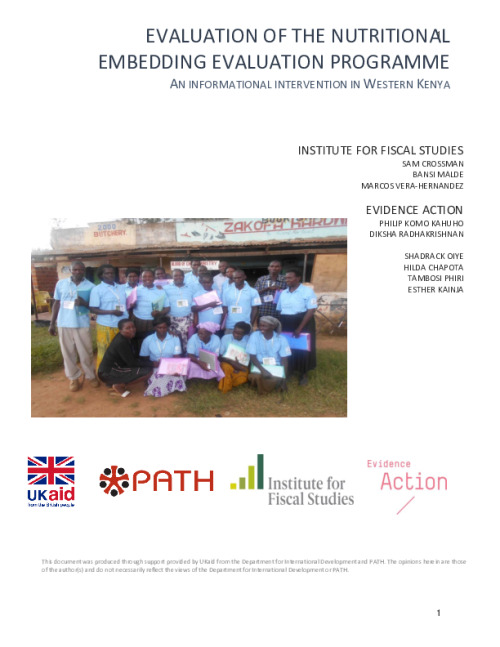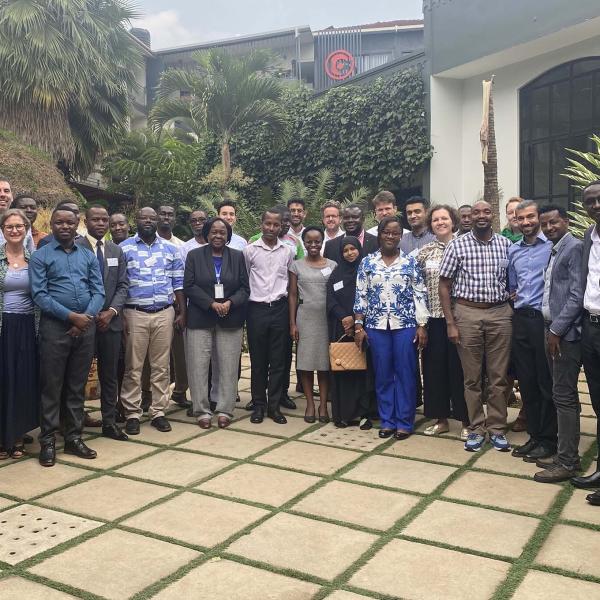Downloads

R130%20NEEP%20Evaluation%20report_Evidence%20Action.pdf
PDF | 2.84 MB
Undernutrition among children remains a significant challenge in Kenya with 26% of children under the age of five registering low height-for-age ratios or, in other words, experiencing stunted growth. The problem is often attributed to parents’ scant knowledge of optimal feeding practices. Augmenting this knowledge by providing caregivers with information on nutrition has proven to be effective - inducing positive changes in caregivers’ behavior and, in turn, improving health outcomes among children. Designed to supply this critically needed information, NEEP was tested as a potentially impactful, cost-effective and scalable innovation to reduce undernutrition and improve growth outcomes among children.
This report provides an evaluation of the programme.
Authors
Institute for Fiscal Studies: Sam Crossman, Bansi Malde, Marcos Vera-Hernandez
Evidence Action: Philip Komo Kahuho, Diksha Radhakrishnan, Shadrack Oiye, Hilda Chapota, Tambosi Phiri, Esther Kainja
Authors

Research Fellow University College London
Marcos is a Research Fellow at IFS, an Affiliate at the Rural Education Action Program and a Professor of Economics at the University College London.

Research Fellow University of Kent
Bansi is a Research Fellow of the IFS, a Senior Lecturer of Economics at the University of Kent and also a Fellow at the Global Labor Organisation.

Sam Crossman
Report details
- DOI
- 10.1920/re.ifs.2017.0130
- Publisher
- The IFS and Evidence Action
Suggested citation
S, Crossman and B, Malde and M, Vera-Hernandez. (2017). Evaluation of the nutritional embedding evaluation programme. London: The IFS and Evidence Action. Available at: https://ifs.org.uk/publications/evaluation-nutritional-embedding-evaluation-programme (accessed: 30 June 2024).
More from IFS
Understand this issue

What is the case for carbon taxes in developing countries?
Carbon pricing can be a powerful tool for reducing greenhouse gas emissions. What are the risks and opportunities from such policies in developing countries?
4 November 2021

How much advertising for food and drink high in fat, salt or sugar do children see?
31 May 2018

Gender norms, violence and adolescent girls’ trajectories: Evidence from India
24 October 2022
Policy analysis

Three ways to improve the design of the UK’s overseas aid spending target
18 January 2024

Distributional analysis of Ghana’s tax system
18 December 2023

FCDO renews TaxDev funding for the next seven years
19 September 2023
Academic research

Targeting men, women or both to reduce child marriage
28 May 2024

Keeping the peace whilst getting your way: Information, persuasion and intimate partner violence
17 May 2024

Forced displacement, mental health, and child development: Evidence from Rohingya refugees
10 May 2024